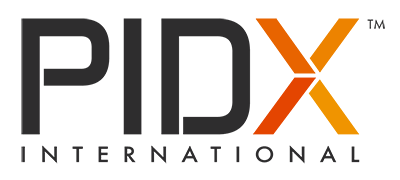Use Cases
Shell
Using PIDX to Develop Industry Standards for Terminal Data Exchange for Bulk Fuels across the Globe
AT A GLANCE
THE INDUSTRY CHALLENGE: Data exchange between companies in the bulk fuels industry globally is supported by a wide variety of legacy data formats, making it cumbersome and costly to support. Also, these formats are often lacking the detailed, company-specific information required to support automatic processing of the data.
WHY PIDX?: PIDX allowed Shell to develop and build a platform-agnostic, industry standard data format to create the links to Shell’s partners within an antitrust compliance framework.
THE SOLUTION: Shell decided to replace all current data formats with the PIDX 5 format and created an IT architecture primarily built on the PIDX standards. To date around 100 PIDX interfaces have been implemented across the globe.
VALUE ACROSS THE SUPPLY CHAIN: Reduced IT and admin cost and complexity, increased speed and reliability of information about what has been lifted, increased control for managing allocations, exchange balances, and credit risk.
Use Case:
Data exchange across bulk fuels terminals around the globe has been a challenge in the Energy Industry. Differences in business models, legal and fiscal requirements and the existing legacy formats used between parties make exchanging data cumbersome, and developing software to integrate numerous different formats is a costly and time-consuming process.
Convinced that there would be a common interest, Shell took the initiative to bring together industry partners to promote the development of standards specifically to support the processes in the fuels distribution industry. The vision was to then develop Shell’s internal systems and processes around such standards and encourage its partners to commit to using the standards as well, to eliminate the diverse and fragmented mechanisms currently used for data exchange, as well as provide the capability to apply real-time control over quantities to be lifted amongst industry partners.
For this purpose, Shell partnered with PIDX International in 2013 to initiate PIDX 5, a series of XML Schemas and implementation guides for use in data exchange between all parties. With a strong antitrust compliance framework at its core, PIDX allowed the forum for operators, suppliers, and technology solution providers to jointly formulate the new Data Exchange standards for the benefit of all industry participants.
Efforts initially focused on the requirements for Bill of Lading (BOL) data in Europe, which was where there was the most variety in business models and data formats, but all was aimed to be fit for purpose for future global use. In parallel to developing the standards, PIDX started maintaining Industry Code Lists for products, terminals and companies, simplifying the mapping and translation required between partners.
After laying the foundation with the BOL, further schemas were developed to support planned movements (orders, trips, shipments, contracts) and right-to-lift authorizations for allocation control.
The Planned Movements standard supports standardization of Terminal Operations’ IT landscape and processes (customizations to cover variances), process efficiency through data accuracy and automation by giving control top down (ERP to loading), working capital optimization (reduced risks, reduced billing times, reduced IT costs), and enables new customer offerings in certain segments (e.g. wholesale).
In 2019, the Supply Notification standard was released, providing a proactive means of communication among suppliers, trading partners, and terminal operators to notify when there has been an event that has occurred, or may occur, that could prevent the ability to load at a given terminal. Proactive notification improves the efficiencies for dispatching trucks to terminals where product is available.
Working with its trading partners, Shell changed legacy interfaces to the PIDX format and created an IT architecture primarily built on PIDX standards, fully integrated with the ERP system. To date around 100 PIDX interfaces have been implemented across the globe, the one standard replacing dozens of legacy formats.
The PIDX standards allow adopters to potentially improve invoice speed, accuracy, product allocation, credit controls, supply reliability, safe loading practices, and eliminate errors in loading.
The following processes are supported:
1. MOVEMENT BY TRUCK
Trucks movements for loading (e.g. shipments, sales orders, sales contracts) and discharge (e.g. truck replenishments) in depots. The actuals will reference the original planning document as well as relevant data for the other parties involved in the transaction.
2. MOVEMENTS BY MASSIVE MEANS
Rail, marine, pipeline and truck movements (for fuel additives) for loading and discharge via TSW Nomination. The actuals will reference the original nomination.
3. SPECIAL MOVEMENTS
Movements that impact stock entitlement but do not fall under 1 or 2: e.g., loss, gain, spillage, etc. The actuals will reference the type of transaction.
4. STOCK ENTITLEMENTS
Exchange of supplier inventory levels at the end of the day (entitlements)
5. PRODUCT ALLOCATION
Processes to control product/customer allocations (in real-time)
6. E-INVOICE
Electronic invoicing of exchange partners (oil companies) with BOL reference.
Diamond Key International
Terminal Operators and Invoice Fulfillment
At a Glance:
INDUSTRY CHALLENGE: Third party terminal operators have people from various companies that fill in paperwork to do business at that terminal. However, each person doing business must complete this tedious process at each terminal for each customer. This comes at the cost of man hours, inefficient processes and human errors.
WHY PIDX: PIDX can set specific standards for the paperwork needed and enable independent operators to fill in the paperwork once and use it across different companies because the required format of data such as products and companies have been agreed as standard which are used by the operators, suppliers, distributors and drawing companies.
THE SOLUTION: PIDX created requirements at terminals to complete loads with the Bill of Lading printed automatically without human intervention leading to huge cost savings.
Use Case:
It is common practice that individual operators must fill in tedious paperwork at OSP or third-party terminals to transact business with each client. This operator could spend hours on paperwork for just one client, even though multiple clients require the same information fields.
Furthermore, after the product is picked up from the terminal, the oil owners need to invoice customers. If there are no standards for the information needed for the invoice, it will take longer for the invoice to process and leads to higher day of sales outstanding.
PIDX helps to streamline this process altogether by enabling Third Party Terminals to standardize paperwork for Individual Operators, requirements for Bill of Lading, and finishing the process with the PIDX invoice standards to ensure invoices are properly processed.

